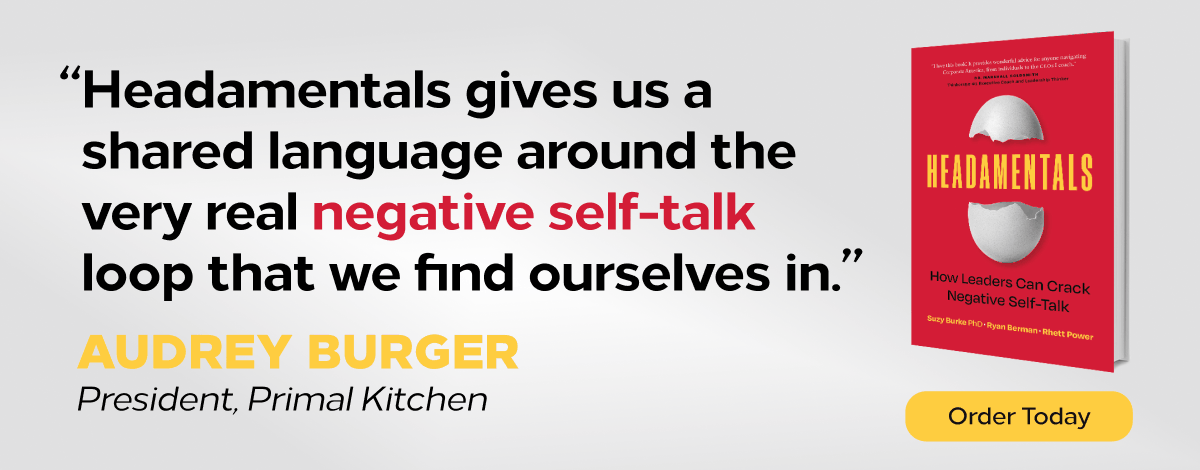Your Attention Is Being Hijacked. Here’s How to Take It Back.
Behavioral scientist Zelana Montminy reveals how to quiet the noise, reclaim your focus, and rediscover what it feels like to be truly present.
Listen now on Spotify or Apple Podcasts:
Does this sound familiar: You sit down to do some real focused work, and within minutes you’ve checked your phone, opened three browser tabs, and mentally planned your lunch—all without realizing it. Our attention doesn’t just wander anymore. It’s being quietly, relentlessly pulled apart by a world designed to fragment it, and most of us have forgotten what real focus even feels like.
Zelana Montminy is a behavioral scientist who advises Fortune 500 companies and her new book is called Finding Focus: OwnYour Attention in an Age of Distraction. Below, she shares five of her big ideas:
1. Focus is not about forcing attention.
Focus is about creating the conditions for attention. We treat focus like a muscle—push harder, power through, tune out—but attention doesn’t work that way. It’s more like breath. The more we grip it, the more it slips away. Think of a snow globe. When you stop shaking it, the flakes settle. Clarity rises. Focus works in the same way. The real work of harnessing attention is not about willpower, but rather it’s about the conditions. It’s about clearing the clutter mentally, physically, and emotionally so that your attention can finally exhale.
2. We are addicted to avoiding discomfort.
Let’s be honest, most of us don’t pick up our phones out of curiosity. We pick them up to escape boredom, stillness, and that quiet ache just beneath the surface. One study found that people preferred electric shocks to sitting alone with their thoughts. That’s how intolerable stillness has become. But if we want to reclaim our attention, we must reclaim our capacity to stay with the pause, the discomfort, the urge, because distraction isn’t random. It’s patterned, protective, and emotional. If we want to change it, we have to start in the discomfort.
This week, Book of the Day is brought to you by Headamentals: How Leaders Can Crack Negative Self-Talk―a concise, actionable guide that helps leaders silence negative self-talk before it spirals into toxic team-talk. Pick up your copy today.
3. Do you remember how it feels to focus?
We talk about focus like it’s purely mental: a task, a strategy, a checkbox. But real focus is also a state. It’s a sensation, and when you’re in it, you feel lit up and anchored, calm but alive. The problem is that we’ve been so overstimulated, scattered, and flooded with inputs that we hardly even recognize that feeling of focus anymore.
“It’s a sensation, and when you’re in it, you feel lit up and anchored, calm but alive.”
That’s why I created something called The Focus Baseline. It’s a guided process to help re-attune to your own internal clarity and remember what being present feels like in your body, not just your brain. Once you feel it, you can find it again because you know what to access. That becomes your compass through the noise, chaos, and overwhelm.
4. There’s no clarity without grief.
This is the quiet truth underneath so much of our distraction. When we finally slow down, put down the phone, close the tabs, and turn off the noise, the first thing that rises is not peace. It’s grief and loss. Grief over how long we’ve been on autopilot. Grief over what we’ve missed, what we’ve buried, and what we didn’t let ourselves feel.
One reader wrote to me after finishing the book and said, “When I stopped distracting myself, I realized I’d been numbing the ache of being alive.” That’s it right there. Focus asks us to sit with that ache, not to fix it or outrun it. In making room for it, we give that ache less power over us, and slowly, over time, it dulls. That room and that honesty are what clear the fog. It’s what makes space for something real, and in that realness, we can reconnect with our attention and focus.
5. Hold focus and tenderness at the same time.
We’ve been taught that focus means grit and control. But the most powerful, grounded people aren’t the ones who shut down their feelings to get things done. They’re the ones who know how to hold both clarity and compassion, direction and depth, presence and heart. That’s the new frontier. Not just the laser-sharp minds that are super productive, but also steady nervous systems that can handle the task switching that comes with tender focus. We don’t need more control. We need more coherence. People who can stay regulated under pressure—who can stay human under stress—are the ones who will lead us forward.
“We don’t need more control. We need more coherence.”
If your focus feels fractured, if your mind feels foggy, and if your days feel like a blur, know that you’re not broken, failing, or alone. It’s literally all of us, and you’re responding wisely and humanly to a world that has been at odds with our biology for far too long.
But there is another way. You don’t have to outsource your attention to the loudest thing in the room. You don’t have to perform productivity while feeling completely numb. You can build a different rhythm that feels less like chasing and more like coming home. So much becomes possible when you quiet the noise inside and out and return to your life. Stay grounded, stay human, and above all, stay close to what matters.




